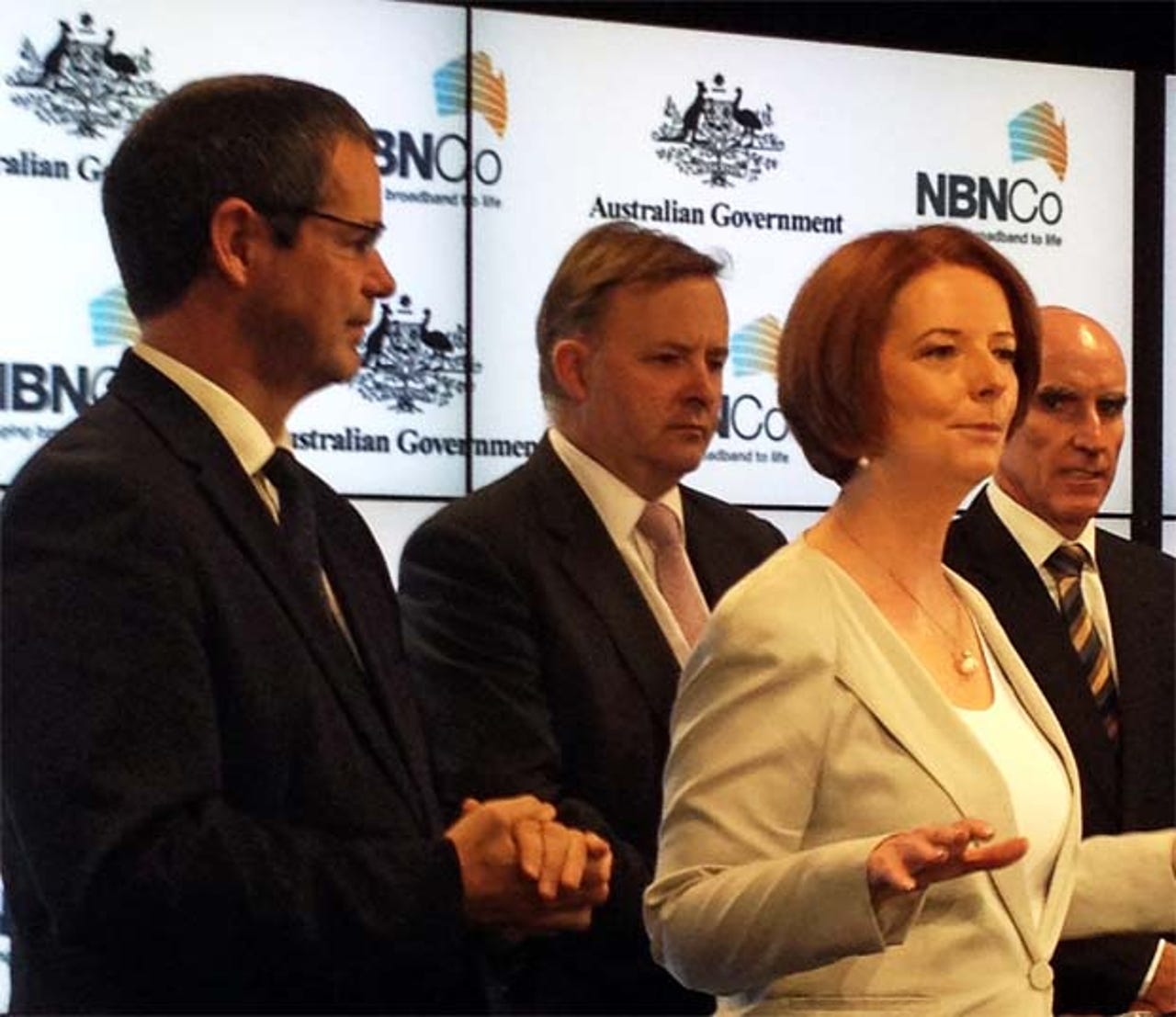'Absolutely right': Gillard stands by Labor's NBN vision

Labor's approach of rolling out fibre to the premises to 93 percent of the Australian population was "absolutely right" former Prime Minister Julia Gillard has said in her memoir released today.
Gillard, who was the prime minister of Australia for three years and three days between June 2010 and June 2013, came to the job with the NBN project already planned out by former Prime Minister Kevin Rudd and then-Communications Minister Stephen Conroy.
Gillard said in My Story, that Labor had originally wanted private sector companies to play a role in building the NBN, in particular Telstra, but said that Telstra "refrained from getting meaningfully involved". This forced the government to create NBN Co and look to structurally separate a reluctant Telstra which struck back.
"Telstra has a loud voice in the Australian political scene, and it was inevitable the government's approach would cause turbulence in its share price."
But Gillard said this largely subsided once the AU$11 billion heads of agreement was struck with Telstra in 2010.
Conroy, Gillard said, was one of the biggest personalities in the Cabinet room, who was not a geek but was passionate about the National Broadband Network.
"His passion for the NBN is not the product of being the nerd in the high school computer club. It is the product of understanding the power of the NBN," Gillard wrote.
"Enough Australians shared his vision of faster speeds, economic benefits and health and education services provided at home for our broadband policy to be a material factor in winning the closest of election campaigns," she added, quoting independent MP Tony Windsor's now-infamous "do it once, do it right, do it with fibre" quote in his decision to support Gillard in a minority government after the 2010 election.
The legislation surrounding the NBN that was entered into parliament in 2011 passed through the House of Representatives because the former prime minister said that the independent MPs and the Greens "understood broadband", but Gillard admitted that it took some negotiation with South Australian Independent Senator Nick Xenophon to get the legislation through the Senate.
Gillard said that when Xenophon called for the release of the NBN business case, it was resisted by Conroy because of the document's complexity and commercial sensitives, and she said he "believed it would be used by the opposition to create mischief".
Gillard admitted that the rollout schedule slipped due to difficulty in getting access to Telstra's pits and pipes for the fibre network, and recruiting appropriately-skilled construction contractors, as well as the delays in 2013 due to concern about asbestos in the Telstra pits.
The former prime minister said that while there were lessons to be learned from the problems in the initial stages of the NBN rollout, she said that this was not a reason to view the whole project as flawed.
"Outside of government, it is accepted wisdom that projects, big and small, encounter problems," she said.
"For established government programs, implementation issues are not reported as making the whole program a bad idea... But for new, visionary projects, any problems with implementation are used to besmirch the merits of the whole project.
"The NBN was condemned by some because, really quite unsurprisingly, Australia's biggest ever public construction project faced hurdles."
Gillard said that governments needed to learn to balance between vision and accountability.
"One hundred percent risk-adverse politicians will never deliver our country the leadership it needs," she said.
"The NBN vision is absolutely right for our nation. Australia should not be left behind networked nations like the Republic of Korea. Country Australians should not be left behind their city cousins. Poorer Australians should not be left in a digital wasteland while richer Australians are fibred up for digital plenty."
Gillard was ousted from the leadership of the Labor party by Rudd in 2013, who then went on to election defeat in September 2013. Since the election, new Communications Minister Malcolm Turnbull has commissioned no less than six reviews into broadband policy and the decisions taken by the former government around the National Broadband Network.
The NBN is now tasked with rolling out a "multi-technology mix" model of broadband that will include fibre to the node, fibre to the basement and HFC in addition to the fibre to the premises in an attempt to cut down the cost and time taken to complete the network. Turnbull has admitted that while he believes his approach is more risk adverse, it is not completely without risk.
"I would say we have mitigated risk, the risk in the project is much less than it would have been under the previous approach, but it is still there. It is still a very, very big project and you cannot eliminate risk."
